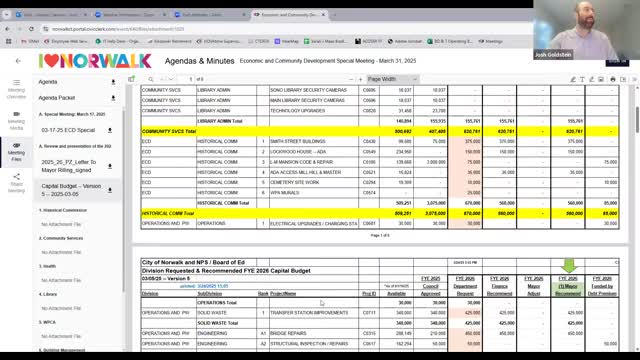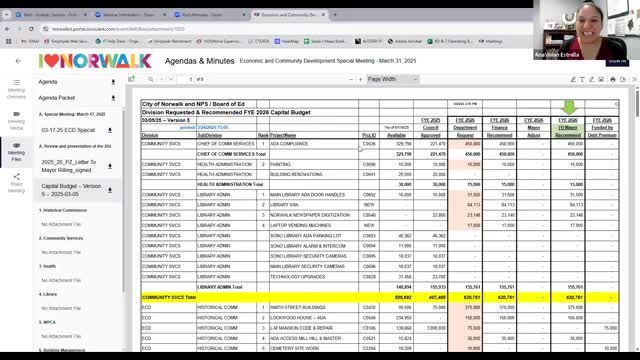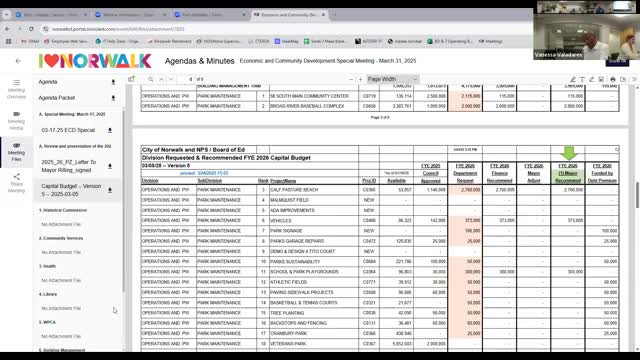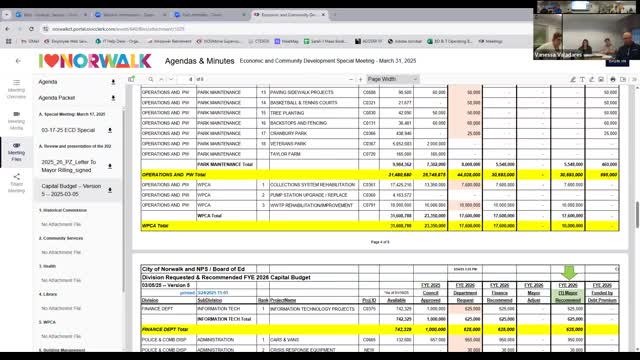Article not found
This article is no longer available. But don't worry—we've gathered other articles that discuss the same topic.

Historical Commission seeks funding to finish Smith Street jail interior, Lockwood projects and cemetery upkeep

City seeks $450,000 for ADA upgrades including lowered service counters and library accessibility

Parks officials push Broad River athletic complex; council members raise PFAS and drainage concerns

WPCA officials present 10‑year collection and treatment plan, say state review pending

